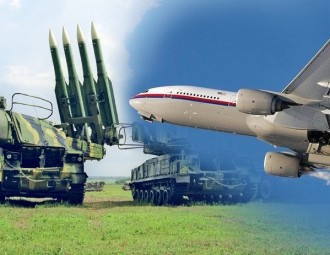Valery Karbalevich: Sanctions adopted by the EU are a maximum the West is ready for today

Something extraordinary, like the shaken down Malaysian “Boeing”, should happen for the West to toughen sanctions against Russia.
On June 22 the EU and Russian exchanged sanctions for the next 6 months. There is no visible progress in regulation of the conflict in Ukraine, thus Russia couldn’t even hope for the abolition of European sanctions. A political scientist Valery Karbalevich assumes that Russia doesn’t demonstrate a desire to make concessions to the West, which means that sanctions will be preserved for a long time. Why isn’t the EU ready to actively and decisively fight for control over the Eastern European region as Russia is doing? Political scientist Valery Karbalevich answered the questions of the “EuroBelarus” Information Service.
- The EU has already prolonged economic sanctions against Russia for 6 more months. How efficient is the automatic prolongation of sanctions without their toughening and additional terms?
- The terms were voiced before – resolution of the crisis situation in Ukraine. Since the crisis isn’t resolved, sanctions remain in force. European Union decided that as early as the last year.
Since it is hard to imagine that the crisis will be resolved in the near future and that Russia will make considerable concessions, we can assume that sanctions will be preserved for a long time.
European sanctions are quite painful for the Russian economy, and, first of all, - the ban on crediting Russian banks.
Sanctions have been prolonged for another 6 months – the time that is given to Russia for improving. If the situation doesn’t change in 6 months – sanctions will be prolonged for some more 6 months.
- Russian PM Dmitry Medvedev ordered to prepare documents for the prolongation of Russian sanctions against the EU. Will Russian restrictive measures inflict damage on the European economy or are they of symbolic meaning?
- Limiting measures do inflict certain damage and first of all to the countries that border on Russia: the Baltic States, Poland, as well as affect agriculture of certain countries.
- If the EU doesn’t support Ukraine and it will lose its fight, Europe will have to defend itself. Basically, George Soros accused Europe in shortsightedness that repeats the mistakes of the pre-war Europe and leads to the big war, didn’t he?
- Europe is still supporting Europe – politically, morally, diplomatically, economically, and even a little bit militarily and technically, even though it doesn’t supply it with lethal arms.
The other thing that we can discuss is the scale of this support. But we need to understand that Europe is pursuing quite limited foreign policy. Europe is an economic giant and a foreign policy midget. It cannot pursue active foreign policy by its nature since all the steps have to be coordinated with every state. The same applies to the “Eastern Partnership” program that to a large degree demonstrates the weakness of the EU. The EU isn’t ready to actively and decisively fight for control over the region of the Eastern Europe as Russia does. This is how the European Union functions. Thus, it is quite hard to expect more decisive actions from the EU.
On the other hand, sword of Damocles constantly hangs over the West: whether the armed support of Ukraine will provoke Russia for more aggressive actions or not? This argument was the basis of the Angela Merkel’s position, which talked Barack Obama into not supplying Ukraine with lethal arms. I wouldn’t say that this argument is absolutely silly, since it is impossible to make univocal choice – whether to start confrontation with Russia and create a real threat of huge European war or to try and finish pressing Russia with economic methods? George Soros says that if the prices for oil remain low for three more years Russian economy will be completely ruined. He contradicts himself: on the one hand, he accuses the West in indecisiveness; on the other – admits that the economic effect from the sanctions is bigger and doesn’t create the threat of a real war.
- Russia still took the course for demilitarization despite the refusal to supply lethal arms to Ukraine. Wouldn’t it be more logical to toughen the sanctions in order to decrease the period of Russian economy’s fall?
- Economic sanctions are a double-edged weapon, which hits not only Russia, but also the countries that introduce sanctions. I saw the figures of losses that German business suffered from the sanctions against Russia. There is no sense in urging Europe to continue economic self-sacrifice for punishing Russia and defending Ukraine. Sanctions adopted by the EU are a maximum the West is ready for today with consideration for all circumstances, including business interests. If Russia increases its aggressive actions against Ukraine, sanctions will certainly be toughened.
Something extraordinary, like the shaken down Malaysian “Boeing”, should happen for the West to toughen sanctions against Russia. I think that if the catastrophe with the Malaysian Boeing didn’t happen, we could have hardly even got the sanctions we witness today.
-
03.01
-
07.10
-
22.09
-
17.08
-
12.08
-
30.09








































